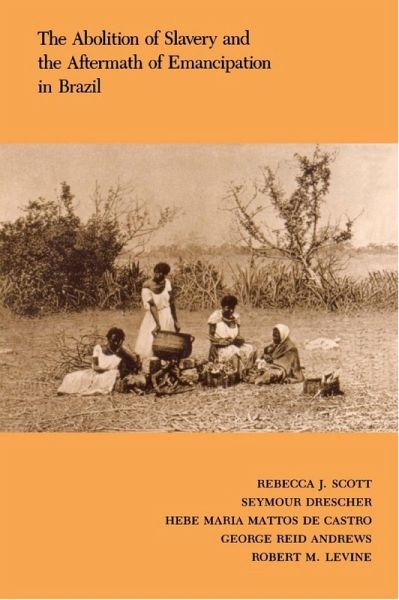
Abolition of Slavery and the Aftermath of Emancipation in Brazil (eBook, PDF)
Versandkostenfrei!
Sofort per Download lieferbar
130,95 €
inkl. MwSt.
Weitere Ausgaben:

PAYBACK Punkte
65 °P sammeln!
In May 1888 the Brazilian parliament passed, and Princess Isabel (acting for her father, Emperor Pedro II) signed, the lei aurea, or Golden Law, providing for the total abolition of slavery. Brazil thereby became the last "e;civilized nation"e; to part with slavery as a legal institution. The freeing of slaves in Brazil, as in other countries, may not have fulfilled all the hopes for improvement it engendered, but the final act of abolition is certainly one of the defining landmarks of Brazilian history.The articles presented here represent a broad scope of scholarly inquiry that cover...
In May 1888 the Brazilian parliament passed, and Princess Isabel (acting for her father, Emperor Pedro II) signed, the lei aurea, or Golden Law, providing for the total abolition of slavery. Brazil thereby became the last "e;civilized nation"e; to part with slavery as a legal institution. The freeing of slaves in Brazil, as in other countries, may not have fulfilled all the hopes for improvement it engendered, but the final act of abolition is certainly one of the defining landmarks of Brazilian history.The articles presented here represent a broad scope of scholarly inquiry that covers developments across a wide canvas of Brazilian history and accentuates the importance of formal abolition as a watershed in that nation's development.
Dieser Download kann aus rechtlichen Gründen nur mit Rechnungsadresse in A, B, BG, CY, CZ, D, DK, EW, E, FIN, F, GR, HR, H, IRL, I, LT, L, LR, M, NL, PL, P, R, S, SLO, SK ausgeliefert werden.













